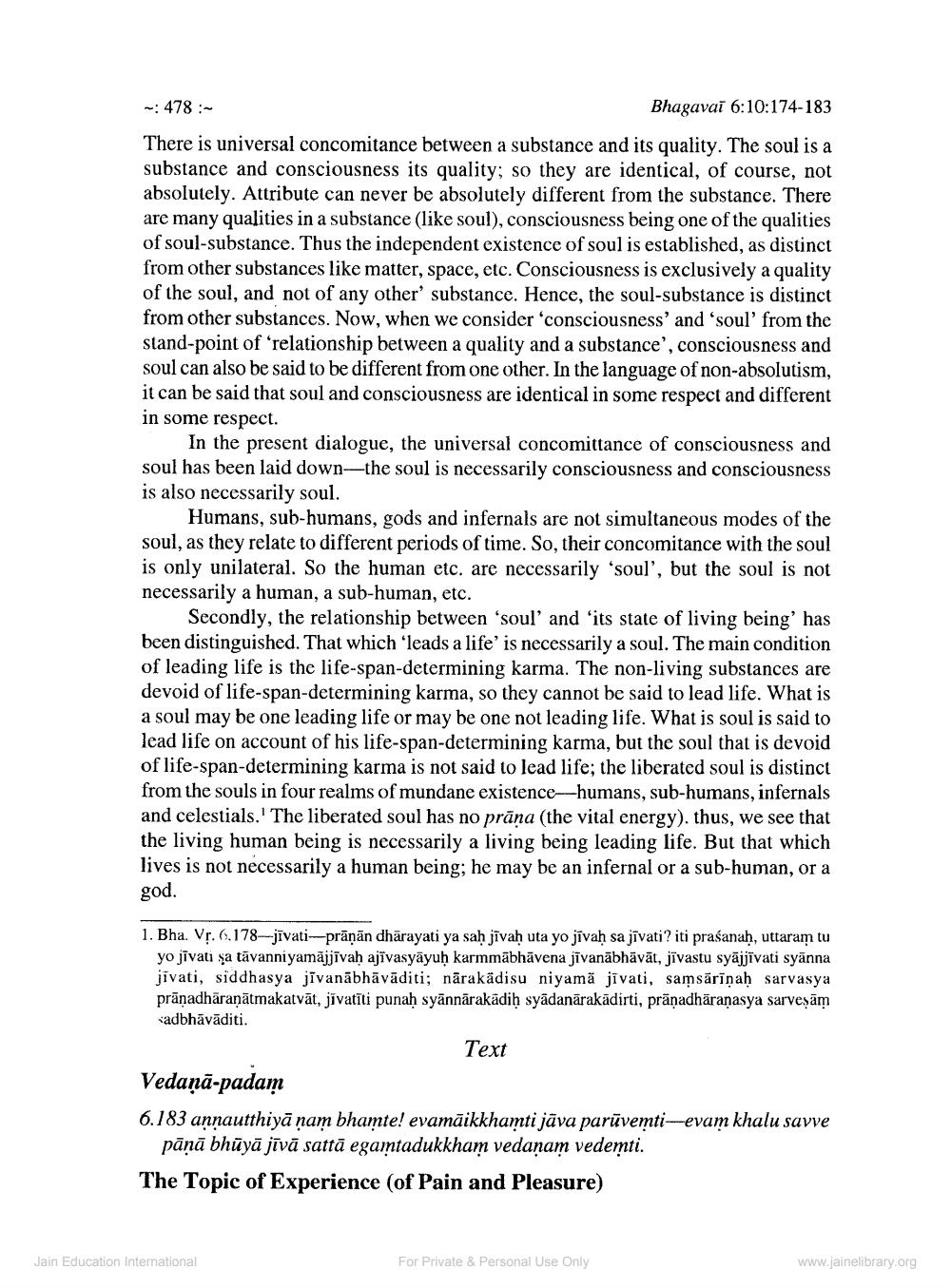________________
~: 478:
Bhagavai 6:10:174-183
There is universal concomitance between a substance and its quality. The soul is a substance and consciousness its quality; so they are identical, of course, not absolutely. Attribute can never be absolutely different from the substance. There are many qualities in a substance (like soul), consciousness being one of the qualities of soul-substance. Thus the independent existence of soul is established, as distinct from other substances like matter, space, etc. Consciousness is exclusively a quality of the soul, and not of any other substance. Hence, the soul-substance is distinct from other substances. Now, when we consider 'consciousness' and 'soul' from the stand-point of 'relationship between a quality and a substance', consciousness and soul can also be said to be different from one other. In the language of non-absolutism, it can be said that soul and consciousness are identical in some respect and different in some respect.
In the present dialogue, the universal concomittance of consciousness and soul has been laid down-the soul is necessarily consciousness and consciousness is also necessarily soul.
Humans, sub-humans, gods and infernals are not simultaneous modes of the soul, as they relate to different periods of time. So, their concomitance with the soul is only unilateral. So the human etc. are necessarily 'soul', but the soul is not necessarily a human, a sub-human, etc.
Secondly, the relationship between 'soul' and 'its state of living being' has been distinguished. That which 'leads a life' is necessarily a soul. The main condition of leading life is the life-span-determining karma. The non-living substances are devoid of life-span-determining karma, so they cannot be said to lead life. What is a soul may be one leading life or may be one not leading life. What is soul is said to lead life on account of his life-span-determining karma, but the soul that is devoid of life-span-determining karma is not said to lead life; the liberated soul is distinct from the souls in four realms of mundane existence-humans, sub-humans, infernals and celestials.' The liberated soul has no präna (the vital energy). thus, we see that the living human being is necessarily a living being leading life. But that which lives is not necessarily a human being; he may be an infernal or a sub-human, or a god.
1. Bha. Vr. 178-jīvati-pränän dhärayati ya saḥ jivaḥ uta yo jivaḥ sa jivati? iti prasanah, uttaram tu yo jivati sa tavanniyamajjivah ajivasyäyuḥ karmmābhävena jivanābhävät, jivastu syājjivati syanna jivati, siddhasya jīvanäbhäväditi; närakâdisu niyama jivati, samsäripaḥ sarvasya prāṇadhāraṇātmakatvāt, jivatiti punaḥ syännärakādiḥ syädanärakadirti, präṇadharanasya sarveṣām Sadbhāvāditi.
Text
Vedaṇā-padam
6.183 anṇautthiya nam bhamte! evamāikkhamti jāva paruvemti-evam khalu savve pāṇā bhāyājīvā sattā egamtadukkham vedaṇam vedemti.
The Topic of Experience (of Pain and Pleasure)
Jain Education International
For Private & Personal Use Only
www.jainelibrary.org




